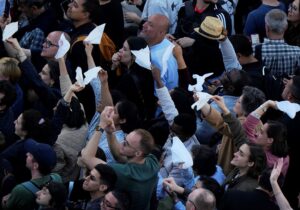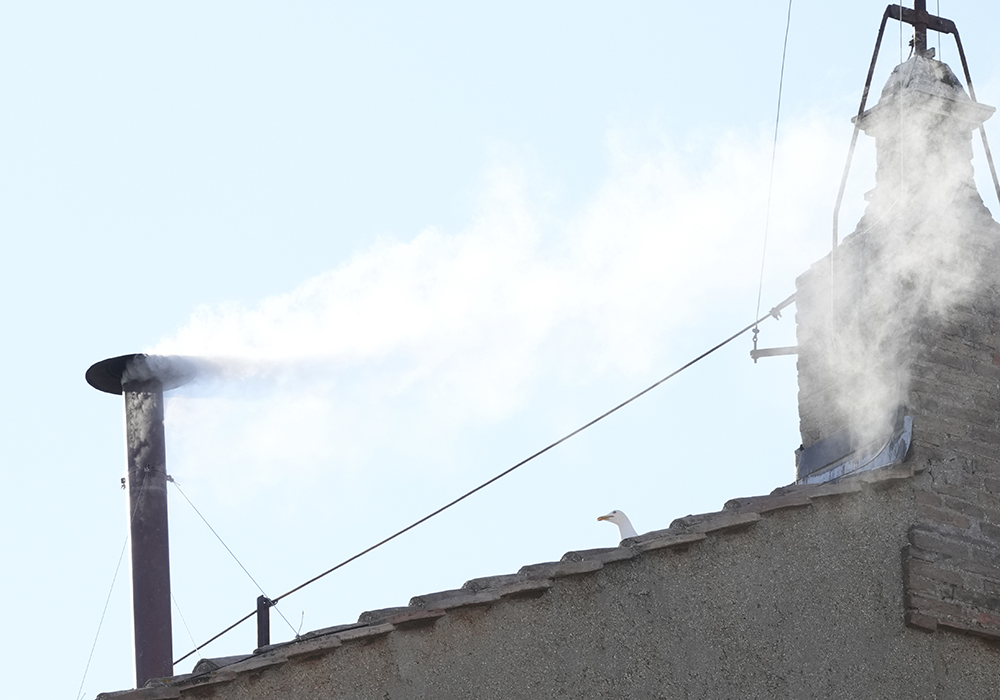By Sekaggya Seka Moses
A new pope has been elected. White smoke billowed from the Sistine Chapel announcing the election of the 267th successor to St. Peter.
It was just after 6 p.m. Rome time when the crowds erupted in St. Peter’s Square.
A new pope is expected on the balcony of St. Peter’s Basilica in a little over an hour.
Bells tolled in the famous basilica as pilgrims waved flags and white handkerchiefs.
The new pope takes over a church that is still growing around the world, but where its center of gravity has rapidly shifted from Europe to Africa and Asia.
Following the death of Francis April 21, members of the College of Cardinals met for nearly two weeks of closed-door meetings, wrestling with the evolving dynamics of life inside and outside the church.
Among the external issues that topped their concerns: the ongoing wars in the Holy Land and Ukraine, migration, the persecution of Christians around the world and the global realignment and demise of multinationalism.
Inside the church, thornier issues revealed fault lines among the College of Cardinals. The newly elected pope will have to decide how to move forward on the path of synodality — Francis’ legacy project of reforming church structures to make them more inclusive — while bringing on board skeptics inside the church.
In one of his final acts before his death, Francis approved an implementation phase for the “synod on synodality” that is supposed to stretch to 2028.
The process is supposed to encourage local churches around the world to reconsider how to better listen to and include non-ordained members.
Following an October 2024 Vatican meeting, church leaders are supposed to be reviewing the formation of priests, accountability mechanisms for bishops, expanding women’s leadership and other efforts aimed at expanding participation in church ministries.
Several critical management concerns will also land on the pope’s desk: a looming pension deficit for Vatican employees and budgetary shortfalls; the unfinished work of rooting out clergy sexual abuse; and deciding whether to continue Francis’ Council of Cardinals, a group of top advisers that provide input to the pope on matters of church governance.

Among the more practical first things the pope will need to decide: whether to press ahead with a trip to Turkey at the end of this month.
A major ecumenical gathering has been organized to celebrate the 1700th anniversary of the Council of Nicaea. Despite failing health, Francis had hoped to make the trip, which is expected to bring together Christian leaders from multiple traditions to celebrate the occasion.
Later this evening, for the first night of his pontificate, the new pope is expected to join the cardinals for a special celebration at the Vatican guesthouse where they have been staying during the conclave.
His first major public event will be his Sunday Angelus on May 11, delivered from the window of the Vatican’s Apostolic Palace.
Have An Advert Or Article You Want Us To Publish? Whatsapp: +256786288379 or email binocularugnews@gmail.com
